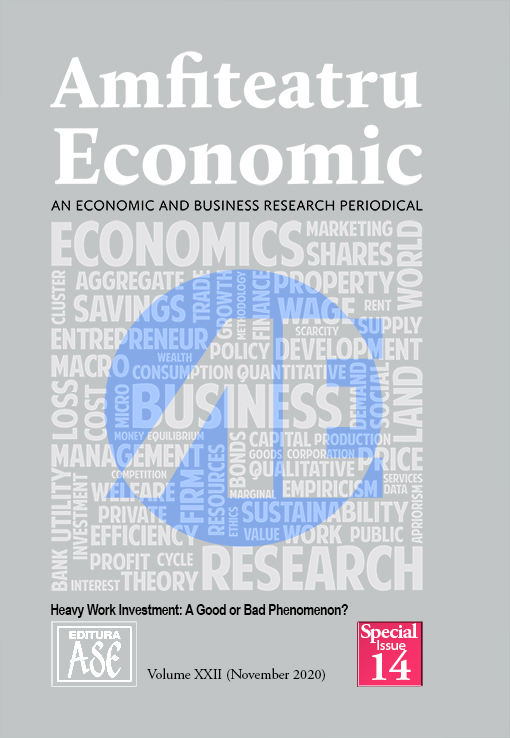Workaholism and a New Generation – Labour Market Survey among Hungarian and Romanian Youth
Workaholism and a New Generation – Labour Market Survey among Hungarian and Romanian Youth
Author(s): Zoltán Musinszki, Magdolna Vallasek, Gábor Mélypataki, Erika Horváthné Csolák, Katalin LiptákSubject(s): Human Resources in Economy
Published by: EDITURA ASE
Keywords: youth generation; working time; home office; Heavy Work Investments; labour market
Summary/Abstract: What is the difference between a workaholic and a hard-working worker? This issue becomes especially important in the current situation with the growing role of home office and teleworking. In addition, the labour market is undergoing a transformation due to generational change, where members of Generation Z will begin entering the labour market. With the new generation in the case of flexible and new employment conditions, the concept of working time will change, and this will bring about changes in the concept of overtime. We assume that members of the younger generation, Generations Y and Z (date of birth between 1995-2009; age 20-29) have similar views on workaholism and working hours, regardless of country and settlement type. We conducted a questionnaire survey in Hungary and Romania. Based on the research, it can be stated that concerning the target group of 20-29-year-olds the concept of workaholism is judged differently by Hungarian and Romanian young people. In both countries, respondents would prefer to work with a schedule of partly or fully flexible working hours than in full-time, fixed or non-fixed working hours. Respondents prefer partly flexible working time in Hungary and fully flexible working time in Romania. Young people have the same attitude towards teleworking regardless of their country, but the type of settlement and their field of education affect their opinions on teleworking. Nearly half of the responders think that a work-life balance can be found, it is only a matter of perception.
Journal: Amfiteatru Economic
- Issue Year: 22/2020
- Issue No: SI 14
- Page Range: 1227-1242
- Page Count: 16
- Language: English

